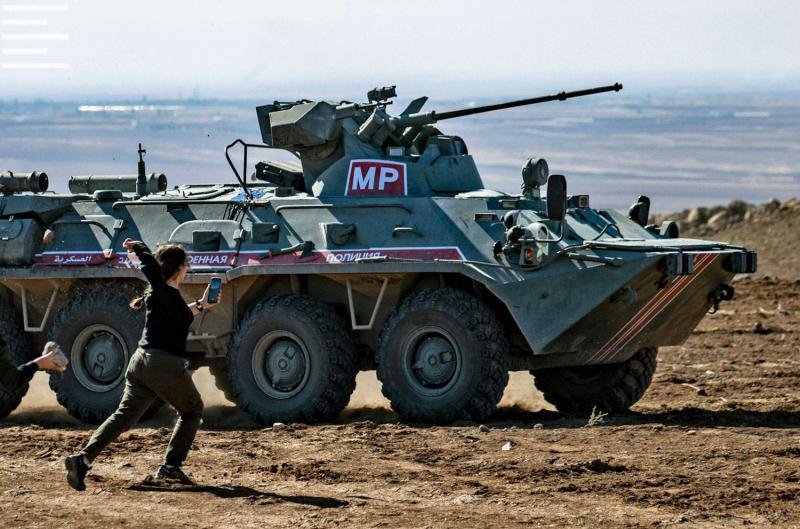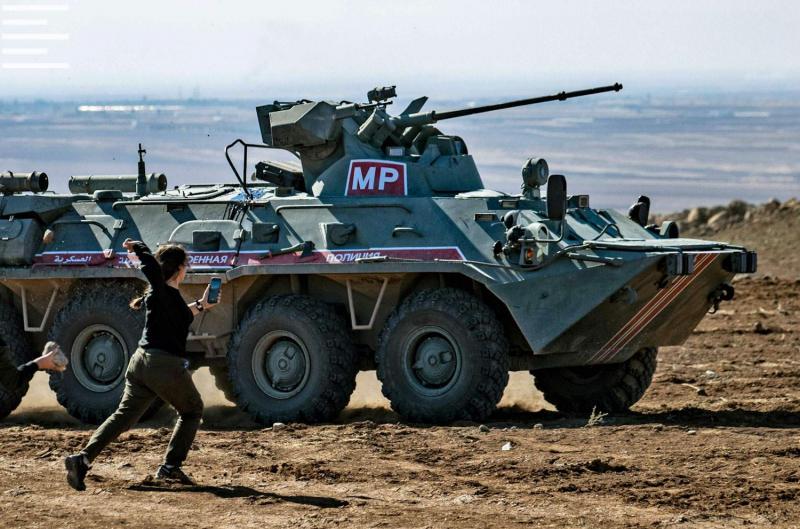Europe's ambiguous stance on Turkey's Syria incursion
When NATO Secretary-General Jens Stoltenberg said Turkey was the one NATO country most exposed to terrorist attacks, he was not only hinting at an undeclared Western acceptance of that country’s blatant aggression on areas east of the Euphrates River in northern Syria, he was also implicitly giving it the mandate to lead the international coalition’s war on terrorism there.
Following the US withdrawal from northern Syria but not without first leaving behind a few troops to either steal or protect the oil there, if we accept US President Donald Trump’s understanding of the problem, the war on the Islamic State (ISIS) and terrorism in northern Syria has become a Russian-Turkish affair. Turkey would have the upper hand, of course, because it is more familiar with the area than the Russians and has its mercenaries and army posted on NATO’s southern border.
Turkey knows better than any of its partners the nooks and crannies and secret dens of ISIS forces in Syria. After all, Turkey was and still is one of ISIS’s gates to and from the world. It was an incubator for many ISIS fighters and sympathisers and is a safe haven for groups that share ISIS’s extremist ideology and methods.
The suicide of ISIS leader Abu Bakr al-Baghdadi, when cornered by US special forces in Syria’s Idlib province, may provide a picture of Turkey’s excellent knowledge of the organisation and of the region. It also provides a picture of the relationship between ISIS and the organisations and people who sympathise with it in northern Syria, especially in areas controlled by Jabhat al-Nusra.
For years in northern Syria, Turkey has been fighting terrorism with one hand and feeding it with the other. The Syrian regime, Iran, Russia, the United States and others did that, too, but Turkey was the champion and has imposed itself as the leader of the war on terror in Syria, just as Russia has made itself the unavoidable gate to a core political settlement of the Syrian crisis.
Turkey is the country that has benefited the most from the war on terror in Syria because it has blackmailed opponents and allies alike. By staying in the north, west and east of the Euphrates, Turkey means to continue this fake war on terror, a war exploited by all to prolong the Syrian crisis, settle scores and make deals, whether in Syria or elsewhere.
The most affected by the Turkish war on terrorism are the Europeans. Not because Ankara does not want this war to end but because the war has given Turkish President Recep Tayyip Erdogan a new pressure card on the Europeans. Yesterday, Erdogan threatened to flood the old continent with Syrian refugees; today he is threatening it with refugees and with sending European ISIS fighters back to their home countries.
It isn’t just the spectre of ISIS fighters held prisoners in Turkish camps that Erdogan is rattling. You have those ISIS prisoners who escaped from Syrian Defence Forces detention facilities and fled to Turkey. There are those hiding in Turkey or in locations in Syria under Turkish control whom Ankara will not pursue until it is time to use them for “Erdoganian” purposes.
Laws in EU countries do not allow the execution of returning ISIS fighters; in some countries, they don’t even allow stripping them of their nationalities. Trying them might be a waste of time because there is no proof of their individual crimes. Such was the case in Britain where jihadists returning from Syria could not be convicted of terrorism, so they were just placed under surveillance.
For the Europeans, Turkey could do worse than unofficially repatriate ISIS fighters. It could smuggle them among fleeing refugees. In that case, European governments would become aware of their existence in their territory only after lone wolves carry out terrorist attacks that would frighten the local citizenry and prepare the Europeans for tougher security measures that would severely restrict their freedoms.
Turkey knows this and is also aware that, if the Europeans had to choose between dealing with the return of their ISIS fighters or keep silent about Turkey’s aggression on northern Syria, they will choose silence. They’d be even more willing to do that if Trump continues to support the Turkish aggression and maintains his decision to withdraw US troops from zones outside the oil fields east of the Euphrates.
What can Europe do about Turkish threats? The Europeans have no choice besides sending their armies to northern Syria or declaring war on Turkey to overthrow Erdogan's regime. Since they can’t do either of those two things, they, chose a course to avoid the repercussions of the Turkish war on terrorism in such a way that Brussels will remain both a political enemy and a strategic ally to Ankara.
The Europeans prefer to take it easy with Turkey. They are looking for solutions that would contain the repercussions of its constant threats to them without resorting to direct confrontation. Some economic sanctions may be sufficient for now. They will not spoil the broth with Erdogan's regime but will allow the European governments to save face and give them time to arrange the domestic affairs in preparation for this crisis.
It is difficult to speak of the possibility of a European military response to Turkish threats. The only European proposal was announced by German Chancellor Angela Merkel calling for the establishment of an international safe zone in northern Syria but, Stoltenberg said, such a proposal would take a long time to implement and it would be difficult to send international troops to that region.
Brussels may be looking for a compromise with Ankara that would ensure keeping European and non-European ISIS fighters away from borders of the old continent. Perhaps it’ll be in the form of an agreement like the one between the two sides to stop the flow of refugees into the European Union. Money could buy Erdogan’s complicity and softening Europe’s rhetoric about Turkey’s Operation Peace Spring could seal the deal.
There are options left to the Europeans that may mitigate Turkish threats regarding ISIS. At the top of those is the possibility for the Europeans to shoulder the financial burden of ISIS prison camps in Turkey, Syria and Iraq and of agreeing to officially repatriate their ISIS fighters. These options would give the Europeans room to manoeuvre not only with just Ankara but also with Washington, Moscow and Baghdad.
The United States has stressed that the European position on allowing European ISIS fighters to return to their countries of origin was becoming more flexible. The United Kingdom was the first to accept the initiative and was ready to partially implement it. British Prime Minister Boris Johnson announced that his government would accept the return of British wives and children of ISIS fighters.
London may later accept the return of all British ISIS fighters and the other European capitals may follow suit but the Europeans' problems in this area will not end until the end of the Turkish war on terror in Syria. It is this war that allows Ankara to blackmail the Europeans with refugees and ISIS fighters. Erdogan is very good at this game, especially when he teams up with Trump and Russian President Vladimir Putin.
Baha al-Awam is a Syrian writer.
This article was originally published in The Arab Weekly.







